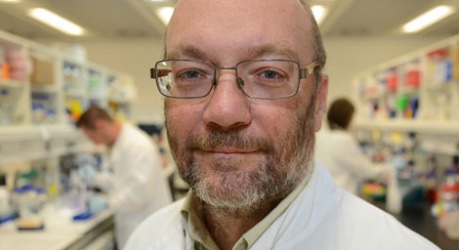Saturday 3rd October 2020, 4:00pm
Translating cutting-edge science into commercial applications should form a key part of the Covid-19 recovery.

Leading Scottish scientist, Professor Bruce Whitelaw, interim director of the Roslin Institute, says now is the time to “unleash the potential” of the scientific advances made at the research centre.
He said the Roslin Institute, which rose to fame for developing the world’s first cloned mammal with Dolly the sheep in 1996, was focused on finding ways to prevent and treat important veterinary diseases while building resilience into animals.
Recent advances include the development of pigs resistant to Porcine Reproductive and Respiratory Syndrome (PRRS) – a disease which costs the pig industry around £1.75 billion in lost revenue in Europe and the US every year.
Describing himself and his colleagues as “genetic engineers”, Professor Whitelaw said although some genetic technologies still had to overcome regulatory processes and gain public acceptance, they had the potential to make a huge difference to global food production.
He called on the Scottish Government to allow the scientific breakthroughs from the Institute to be released and developed into commercial propositions for new businesses in Scotland.
“The UK Government is making a lot of encouraging noises around being more supportive of this technology, but north of the border we have an entirely different regime. It’s not challenging from a research perspective but it’s challenging to think if you develop something successful we may not have the option to use the technology in our own country. Let us loose! We need the doom and gloom that Covid has given us to be
lifted and to propel the rise of a whole raft of business activity.”
Co-located on the University of Edinburgh's Easter Bush Campus, Roslin Innovation Centre is working to unleash potential through its Food and Agriculture Science Transformer (FAST) programme. John Mackenzie, CEO, said businesses will be developed based on what the market needs, with a focus on three areas – regenerative aquaculture, alternative pollinators and vertical farms.
Read article as published in The Press and Journal